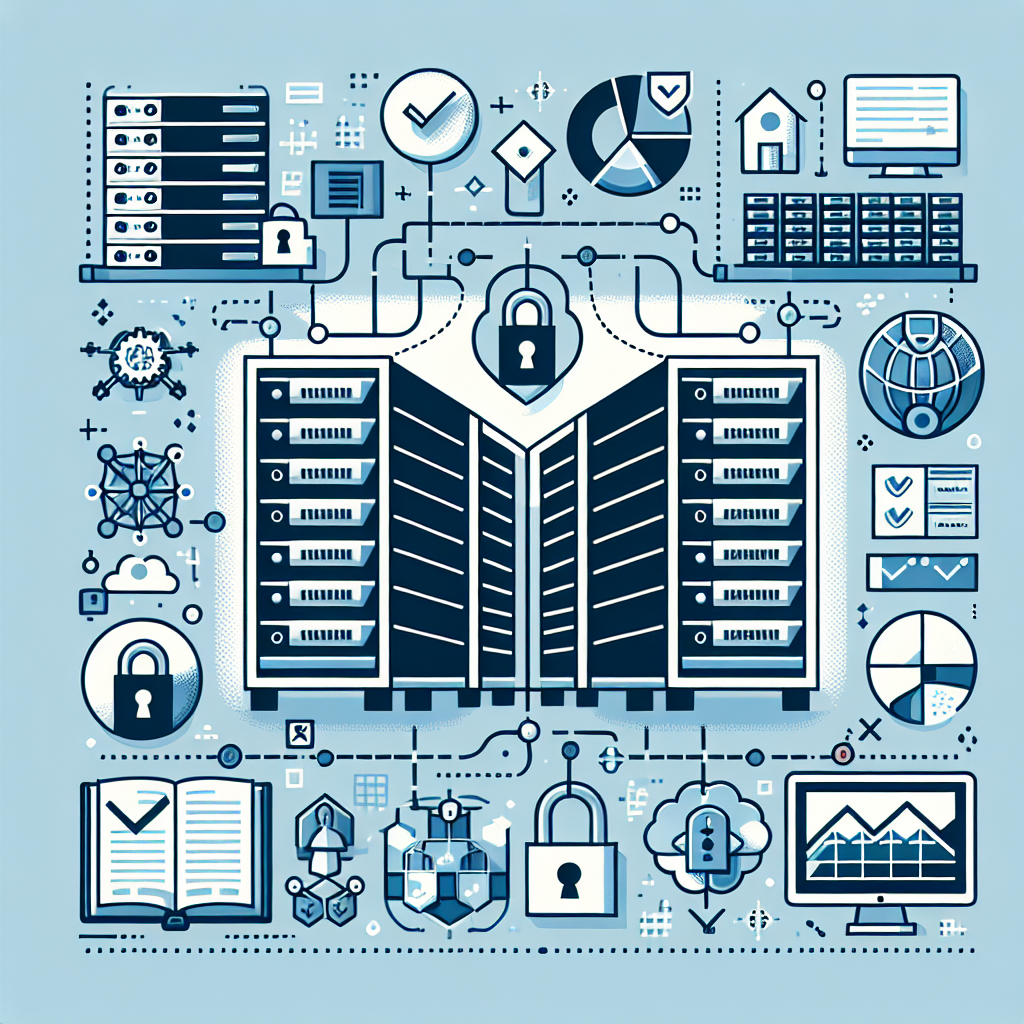Your cart is currently empty!
Achieving Data Center Compliance: Strategies for Successful Implementation

In today’s digital age, data centers play a crucial role in storing and processing vast amounts of information for businesses of all sizes. With the increasing importance of data security and privacy, achieving data center compliance has become a top priority for organizations to ensure the protection of sensitive information.
Data center compliance refers to the adherence to industry regulations and standards that govern the handling and storage of data. Failure to comply with these regulations can result in hefty fines, legal repercussions, and damage to a company’s reputation. Therefore, implementing strategies for successful data center compliance is essential for businesses to safeguard their data and maintain trust with their customers.
One of the first steps in achieving data center compliance is to identify the specific regulations that apply to your organization. Depending on the industry in which your business operates, you may be subject to regulations such as the General Data Protection Regulation (GDPR), the Health Insurance Portability and Accountability Act (HIPAA), or the Payment Card Industry Data Security Standard (PCI DSS). Understanding the requirements of these regulations is crucial in developing a compliance strategy tailored to your organization’s needs.
Once you have identified the relevant regulations, the next step is to assess your current data center infrastructure and practices to identify any gaps or vulnerabilities that may impact compliance. This includes evaluating your data storage and processing systems, security measures, access controls, and data backup procedures. Conducting regular audits and assessments of your data center environment can help identify areas for improvement and ensure ongoing compliance.
Implementing robust security measures is a key component of achieving data center compliance. This includes implementing encryption protocols, firewalls, intrusion detection systems, and access controls to safeguard sensitive data from unauthorized access or breaches. Regularly updating and patching software and systems is also essential in protecting against security threats and vulnerabilities.
In addition to technical security measures, establishing policies and procedures for data handling and management is critical for compliance. This includes defining roles and responsibilities for data protection, implementing data retention policies, and providing employee training on data security best practices. Regularly monitoring and enforcing these policies can help ensure that data center operations are conducted in compliance with industry regulations.
Finally, maintaining documentation and records of your data center compliance efforts is essential for demonstrating adherence to regulations during audits or inspections. Keeping detailed records of security measures, policies, and procedures, as well as audit reports and assessments, can help provide evidence of compliance and mitigate potential legal risks.
Achieving data center compliance requires a multi-faceted approach that involves understanding regulatory requirements, assessing and improving data center infrastructure, implementing security measures, establishing policies and procedures, and maintaining documentation. By following these strategies for successful implementation, organizations can ensure the protection of their data and maintain compliance with industry regulations.

Leave a Reply